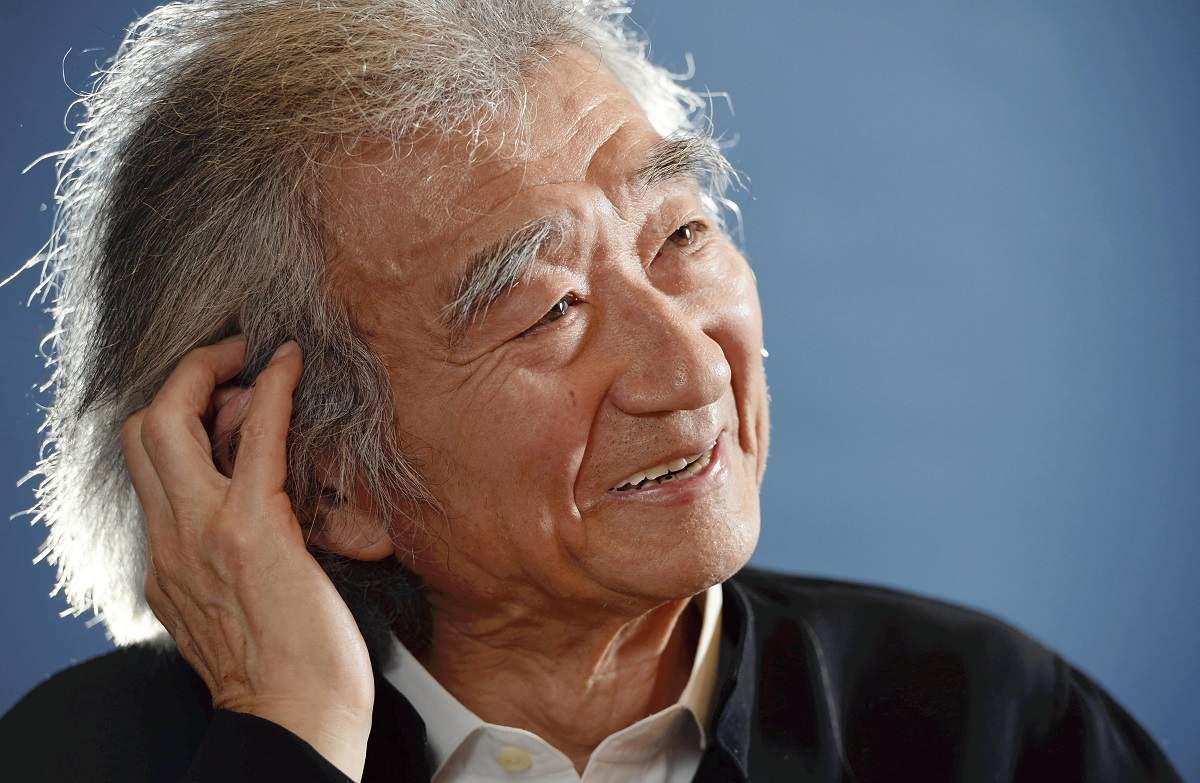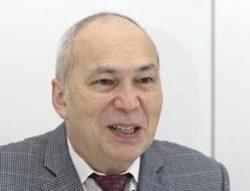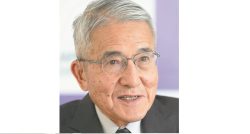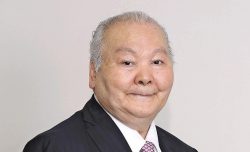Obituary / Conductor Seiji Ozawa Shared a Bounty of Human Kindness; His Work to Foster Talent Knew No Borders

Conductor Seiji Ozawa speaks during an interview at the Tokyo headquarters of The Yomiuri Shimbun in December 2014.
21:00 JST, February 10, 2024
It was Christmas Eve in 2018 when I had the chance to interview Seiji Ozawa, despite his poor health on many days. He was wearing a sweater adorned with sparkling lights. “Just for today,” he said proudly.
In retrospect, he might have worn the sweater to entertain his little grandchild, but it gave me an icebreaker before the interview. The writer Haruki Murakami once described Ozawa as “naturally amiable,” and now I had proof of this.
Ozawa’s immense warmth as a person was key to how he united talented players at the world’s top orchestras.
Fabio Luisi, chief conductor of the NHK Symphony Orchestra, said he grew up listening to music conducted by Ozawa as a child. Luisi applauded him for shifting the role of a conductor away from that of a commander and creating music with the players on a more equal footing.
This approach was based on the teaching method systematized by Ozawa’s mentor Hideo Saito, who trained him without compromise. Ozawa would wake up early each morning to make a thorough study of the score, which gave weight to his conducting. Many musicians who performed with him have said that the feel of the room changed the moment he stepped onto the podium.
Ozawa’s stunning concentration would instantly create tension in the hall, lending even a quiet, tranquil piece a sense of awe and profundity. In his final years, he liked to conduct the third movement of Beethoven’s String Quartet No. 16. Sound would emerge faintly out of silence, before rising to a clear crescendo. The audience would hesitate even to breathe.
“My life is an experiment,” Ozawa often said. He explored how much a Japanese performer could achieve in the world of Western music. In the postwar era, when catching up with the West was a long-held dream in Japan, Ozawa made great strides in music. The sight of him as a conductor performing with the world’s top orchestras at prestigious opera houses gave hope to many Japanese.
Ozawa also appeared on TV programs such as “Orchestra ga yattekita” (Here comes the orchestra), and launched a music festival in Matsumoto, Nagano Prefecture. He devoted himself to sharing the joy of music with a wide range of people.
And until his final years, the maestro also strove to nurture young musicians. In Kyoto and Nagano prefectures as well as in Switzerland, he taught young people from all over the world the essence of an ensemble — listening intently to each other’s performance. “Seeing them play together brings tears to my eyes,” he once said.
For Ozawa, music was something everyone had in common, regardless of whether you were from the East or the West.
Top Articles in Society
-

JAL, ANA Cancel Flights During 3-day Holiday Weekend due to Blizzard
-

Record-Breaking Snow Cripples Public Transport in Hokkaido; 7,000 People Stay Overnight at New Chitose Airport
-

Australian Woman Dies After Mishap on Ski Lift in Nagano Prefecture
-

Foreign Snowboarder in Serious Condition After Hanging in Midair from Chairlift in Nagano Prefecture
-

Train Services in Tokyo Resume Following Power Outage That Suspended Yamanote, Keihin-Tohoku Lines (Update 4)
JN ACCESS RANKING
-

Univ. in Japan, Tokyo-Based Startup to Develop Satellite for Disaster Prevention Measures, Bears
-

JAL, ANA Cancel Flights During 3-day Holiday Weekend due to Blizzard
-

China Confirmed to Be Operating Drilling Vessel Near Japan-China Median Line
-

China Eyes Rare Earth Foothold in Malaysia to Maintain Dominance, Counter Japan, U.S.
-

Japan Institute to Use Domestic Commercial Optical Lattice Clock to Set Japan Standard Time























